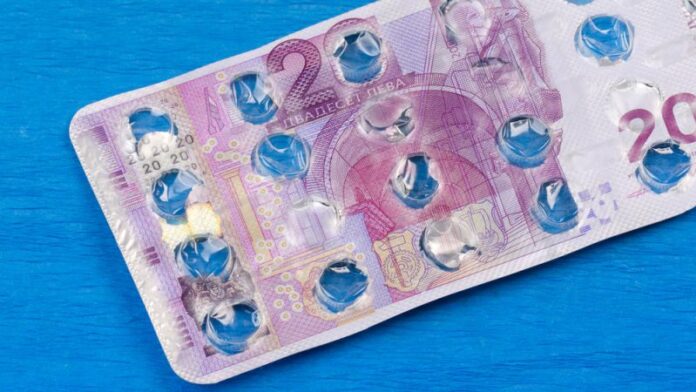Bulgaria’s parliament has adopted measures to reduce the misuse of public money in the purchase of drugs for cancer patients, attempting to sidestep an infringement procedure launched by the European Commission, according to Euractiv.
In a manoeuvre to prevent the Commission from referring the matter to the Court of Justice, Bulgaria’s parliament has adopted a new mechanism to reduce the huge differences in the prices of important medicines.
The National Health Insurance Fund (NHIF) will now give two alternative prices to hospitals for a certain drug. The first price will be determined by the average value of market transactions for each drug during the previous six months. The second price is the one at which the hospital has negotiated supplies from the distributor. If the second price is lower than the first, the state will pay the lower costs.
The new formula for calculated drug prices will start to apply from 1 July 2024.
“A consensus formula was adopted for price regulation of drugs for the treatment of oncological diseases”, MP Vasil Pandov from the centre-right PP-DB coalition, which is part of the governing majority, commented to Euractiv.bg.
“We could not accept the practice of buying drugs at the lowest cost because, in such a case, the traders might refuse to supply drugs. What we are proposing allows to determine the details of the average value of the drugs, and the price differences will not be 20 times, but up to 20%”, he added.
For a decade, the NHIF paid different prices to public and private hospitals for the same medicines used for the treatment of oncological diseases. In some cases, private hospitals pay up to 10 times more for the same drugs than public hospitals, and in both cases, the money is reimbursed by the NHIF.
This occurred until now because Bulgarian legislation had obliged state hospitals to uphold public procurement processes for the purchase of medicines, while private hospitals bought them after direct negotiation with traders, who, in some cases, are related to them.
These rules led to a public scandal four years ago when the former manager of the National Health Insurance Institution, Decho Dechev, announced that private hospitals paid eight times more than state ones for the same cancer drug (Pemetrexed), with the price varying between €65 and €530.
The data provided by Dechev showed that private hospitals buy various drugs at higher rates than state hospitals, although the biggest difference mostly pertained to Pemetrexed.
This led to a parliamentary scandal and accusations of corruption and lobbying by the opposition of the third government of Boyko Borisov, in power at that time.
Because of the different legal treatment of state and private hospitals, five years ago, the European Commission started infringement procedures against Bulgaria for non-compliance of the national law with the European rules in the field of public procurement in healthcare.
The other major reason for drug price abuses in Bulgaria is the lack of a system for e-auctions in healthcare, the construction of which has been blocked by lawsuits filed by drug suppliers.
In the electronic auction, with a clear and transparent procedure for the delivery of a medicinal product, several wholesalers compete and, in competition, offer significantly lower prices. The prices achieved in the centralised electronic auction can be used as a “reference”, and the NHIF will pay all hospitals equally.
Health experts commented that after the launch of the system for centralised health procurements, Bulgarian health care can save hundreds of millions of euros per year with much simpler procedures.


